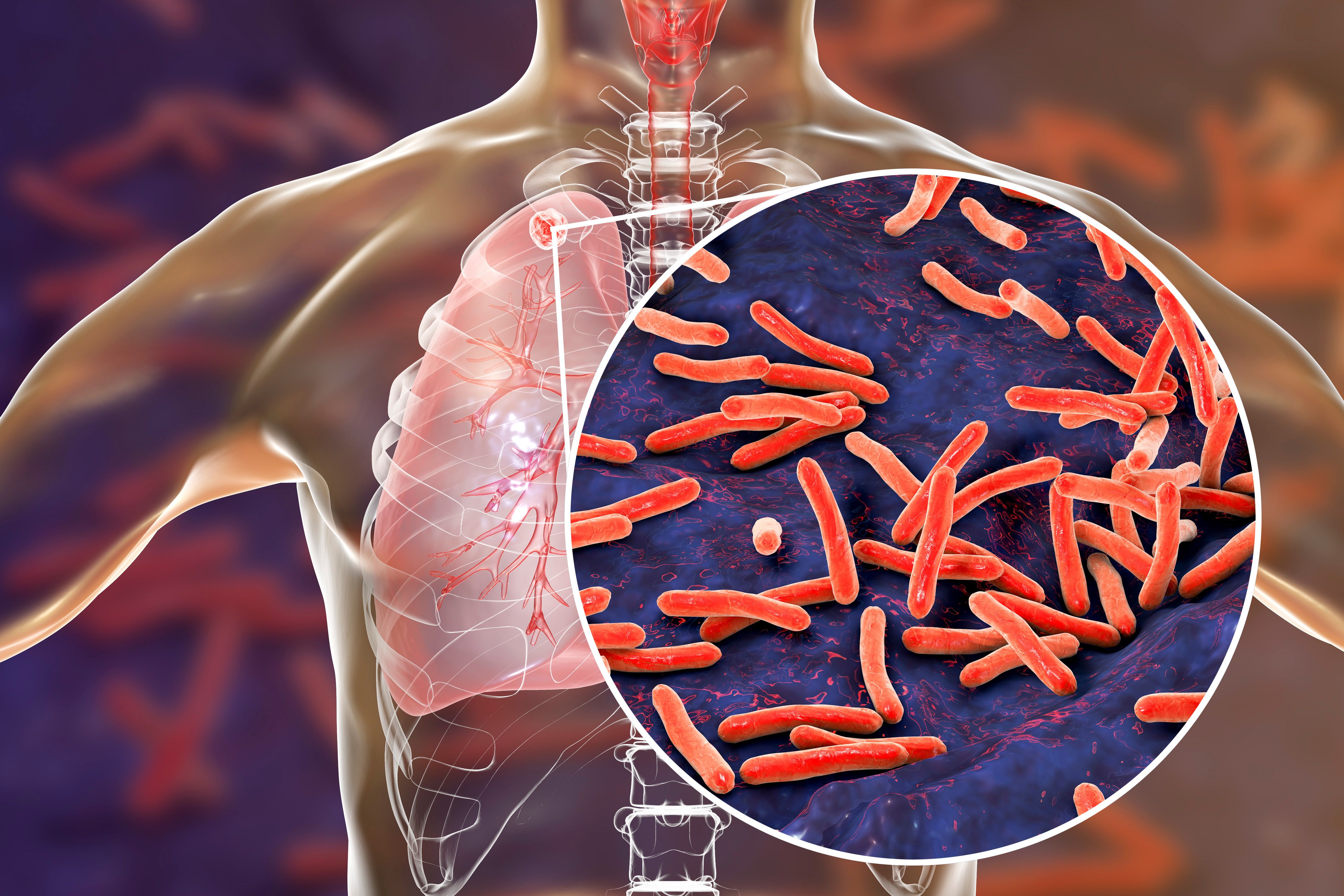News
Article
Second-Line Bedaquiline-Based Regimens Demonstrates Microbiological Response in Patients With TB
Author(s):
The regimen, which was used as second-line treatment in patients with drug-resistant TB, had a similar microbiological response to those with drug-sensitive TB taking first-line regimens.
Image credit: Dr_Microbe | stock.adobe.com

Patients with drug-resistant tuberculosis (TB) who were treated with bedaquiline-based second-line medications had a similar microbiological response to patients with drug-sensitive TB who were treated with first-line regimens, according to study authors who published their results in The Journal of Infectious Diseases. The researchers note that these findings are a step in the right direction for shortening the duration of treatment for drug-resistant TB—which currently requires treatment with medication for up to 2 years. For individuals with drug-sensitive TB, treatment is typically completed in about 6 months.1
There is no single standard bedaquiline-based second-line regimen for drug-resistant TB; further, it is recommended to use a combination therapy that consists of different classes of antibiotics based on availability. The investigators note that the lack of knowledge on oral bedaquiline-based second-line treatments and their ability to kill TB-related bacteria prompted the initiation of this study.1
The study analyzed 31 participants with drug-sensitive TB who took first-line treatment—rifampin (Rifadin; Sanofi US), isoniazid, ethambutol (Myambutol; Lupin Pharmaceuticals), and pyrazinamide—and 23 participants with drug-resistant TB who took second-line treatment—bedaquiline (Sirturo; Johnson & Johnson), pyrazinamide, levofloxacin (Levaquin; Ortho-McNeil-Janssen Pharmaceuticals), linezolid (Zyvox; Pfizer), and clofazimine (Lamprene; Novartis Pharmaceuticals). The researchers noted that the number of bacteria in the patient sputum was measured using an automated test and laboratory methods that can detect cryptic bacteria they can go undetected by routine methods, then observed the rate of decrease in bacteria over time during the duration of therapy.
According to the findings, treatment with second-line bedaquiline-based regimens in patients with drug-resistant TB were observed to be comparable to first-line regimens in patients with drug-sensitive TB, with similar rates of Mycobacterium tuberculosis (Mtb) being killed during the first 2 months of therapy. Further, the authors note that there were similar signs and symptoms of TB between the 2 groups after 2 months of therapy (eg, dyspnea, cough, fever, blood-tinged sputum).1,2
“The rate of decline measured at 2 weeks was comparable in the 2 groups by all measures,” said study statistician Myung Hee Lee, PhD, associate professor of clinical epidemiology in medicine and associate professor of statistics, in a press release. “Just 2 months after treatment, 77.8% of patients from both groups tested negative for the bacterium.”
Further, the results indicated that patients with drug-resistant TB demonstrated resistance to pyrazinamide and had a slower rate of Mtb killing during the first 2 weeks of therapy compared to those who were sensitive, which is consistent with prior research. The authors also acknowledge that—despite its potent sterilizing activity—bedaquiline alone is potentially not responsible for the positive effects that were observed in patients with drug-resistant TB.2
“Patients who have drug-resistant TB tend to have advanced disease, and most have previously been treated with first-line drugs,” said lead study author Kayvan Zainabadi, PhD, assistant professor of molecular microbiology at Weill Cornell Medicine, in the press release. “Seeing them respond at the same rate as drug-sensitive patients to treatment is encouraging.”
With the FDA’s approval in 2012, bedaquiline became the first new TB drug in 4 decades. Guidelines were updated to accommodate the oral drug, and it replaced injectable toxic antibiotics, such as streptomycin. Further, the authors believe that this study is the first to address the gap in knowledge surrounding the microbiological response of patients who receive the 2 therapies. According to the authors, it will be easier to implement the bedaquiline-based regimens in resource-limited settings where TB is more common.
“Overall research is moving in the direction of finding new drug regimens for TB and shorter and shorter treatments,” said study co-author Daniel W. Fitzgerald, MD, director of the Center for Global Health at Weill Cornell Medicine and professor of medicine in microbiology and immunology at Weill Cornell Medicine, in the press release. “We now have options for patients.”1
References
Weill Cornell Medicine. Drug-resistant tuberculosis responds rapidly to bedaquiline-based second-line therapy. News release. February 27, 2024. Accessed March 4, 2024.
Zainabadi, K, Vilbrun, SC, Mathurin, LD, et al. Bedaquiline, Pyrazinamide, Levofloxacin, Linezolid, and Clofazimine Second-line Regimen for Tuberculosis Displays Similar Early Bactericidal Activity as the Standard Rifampin-Based First-line Regimen, The Journal of Infectious Diseases, 2023;, jiad564, doi:10.1093/infdis/jiad564
Newsletter
Stay informed on drug updates, treatment guidelines, and pharmacy practice trends—subscribe to Pharmacy Times for weekly clinical insights.






